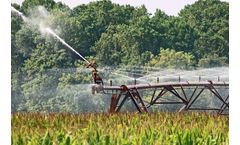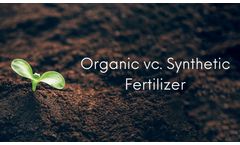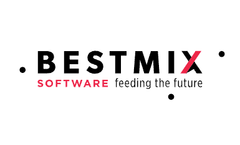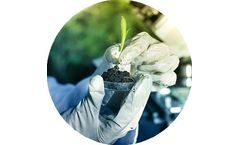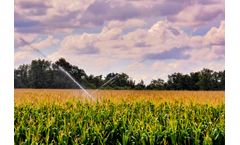Sustainable Use Of Agricultural Articles & Analysis
282 articles found
Water is present in everything we eat. It often goes unseen, yet it is essential for growing, processing, transporting, and preparing every ingredient that reaches our tables. From a cup of coffee to a fresh salad or a plate of rice, water is at the heart of global gastronomy. Today, in an increasingly interconnected world, this relationship between water and food takes on new dimensions, ...
In the ever-evolving field of genetic research, precision and efficiency are paramount. The Base Editing Library Screening Service is a groundbreaking approach that enables researchers to explore genetic variations with unparalleled accuracy. This service leverages cutting-edge base editing technology, which promises to revolutionize how genetic modifications are performed. Base editing, a novel ...
Red Plains Butchery: A Sustainable Approach to Meat Processing Located in Oklahoma, Red Plains Grand Butchery, or Red Plains Butchery, is a leader in sustainable meat processing. Founded by Trey Clinkenbeard with a vision to support local ranchers and preserve the legacy of American ranching, Red Plains Butchery offers high-quality, custom meat products such as jerky, snack sticks, summer ...
In agricultural biotechnology and plant physiology, fatty acids quantification plays a critical role in understanding metabolic pathways, lipid biosynthesis, and nutritional value. ...
King Sitric: Championing Sustainability wiht Local Seafood and Innovative Waste Management Located in the scenic village of Howth, Dublin, King Sitric Seafood Bar & Guesthouse offers much more thna just incredible food and a relaxing stay. Known for its locally sourced seafood and breathtaking views of the Irish Sea, this charming establishment combines delicious dining with a deep ...
Growing conditions have been perfect over the last few weeks, so fertiliser has been going on ‘a plenty’ but have you a Nutrient Management plan (NMP) in place? Many businesses have signed up to nutrient planning as part of their Sustainable Farming Incentive (SFI) agreement, and the Environment Agency is looking very closely at NMP’s when they are inspecting ...
The palm oil industry is a cornerstone of agricultural economies in many tropical regions, especially in Southeast Asia and Africa. ...
Understanding plant hormones is crucial for improving agricultural practices, enhancing crop sustainability, and bolstering resistance against adverse environmental conditions. ...
In today’s rapidly changing world of agriculture, effective water management is the secret to having healthy crops, farming sustainably, and achieving maximum yields. ...
Feeding your plants is a fundamental aspect of nurturing a thriving garden, whether you’re aiming for a bountiful harvest or flourishing blooms. However, the choice of fertilizer significantly impacts the health of your plants and the environment. There are two primary types of fertilizers – organic and synthetic. In this article, we’ll delve into the pros and cons of each, ...
Driving sustainability in the food value chain through integrated feed formulation and life-cycle assessment software. DSM-Firmenich, the leading innovator in health, nutrition, and beauty, and BESTMIX Software, a leader in feed and pet food production solutions, announce their strategic partnership to measure and manage the environmental footprint of animal ...
ByBESTMIX
Increased Food Security Concerns: The necessity to improve agricultural productivity to meet food requirements is prompting the use of agrochemicals. 3. ...
How Does a Biochar Machine Contribute to Sustainable Agriculture? The biochar machine is central to the efficient production of biochar. These machines are designed to process large quantities of organic waste into biochar, offering multiple benefits for agricultural applications. When used as a soil amendment, biochar improves ...
Creative Enzymes is at the forefront of developing specialized enzymatic solutions that enhance feed efficiency, support animal health, and contribute to sustainable agriculture. The Scientific Basis of Enzymes in Feed Enzymes are specialized proteins that act as catalysts in biochemical reactions, facilitating the breakdown of feed components into simpler, ...
Several studies have shown that the activity dynamics of toxins and antimicrobials are closely related to their use in agriculture and animal husbandry. Therefore, innovative delivery methods for toxins and antimicrobials are becoming increasingly important in the agricultural sector. Why Are Liposomes Needed in Agriculture? ...
Biochar is a carbon-rich material produced through the pyrolysis of organic biomass under low oxygen conditions. Common feedstocks include agricultural waste, forestry residues, and even municipal organic waste. Its porous structure and chemical properties make it highly effective for soil improvement and environmental benefits. Agricultural practices in developing countries often face hurdles ...
Japonilure has shown great promise in effectively attracting insects and aiding in agricultural pest management. In this article, we delve into the effectiveness of Japonilure in attracting insects, its potential impact on agricultural pest management, and ongoing research on optimizing its use for various insect species. ...
Field Irrigation Systems are essential in agriculture since they help provide water to plants where rain may be erratic or unavailable. Given the ever-rising population around the globe, food production is on the rise, and thus, there is a need to maximize agricultural production. Therefore, contemporary field irrigation systems have developed as an all-important tool to facilitate crop growth, ...
In this way, the use of biochar from agricultural waste biomass not only contributes to soil health but also actively combats global warming. Waste Management and Circular Economy Using agricultural waste to make biochar presents a sustainable solution to managing biomass waste, transforming it into a valuable ...
Water plays a critical role in agriculture, serving as the lifeblood for crops and soil, and is essential for growing food. However, natural rainfall is often unpredictable, insufficient, or unevenly distributed across regions, making irrigation systems a vital component of modern farming. With effective irrigation, many farmers would be able to produce enough crops to meet both local and global ...








